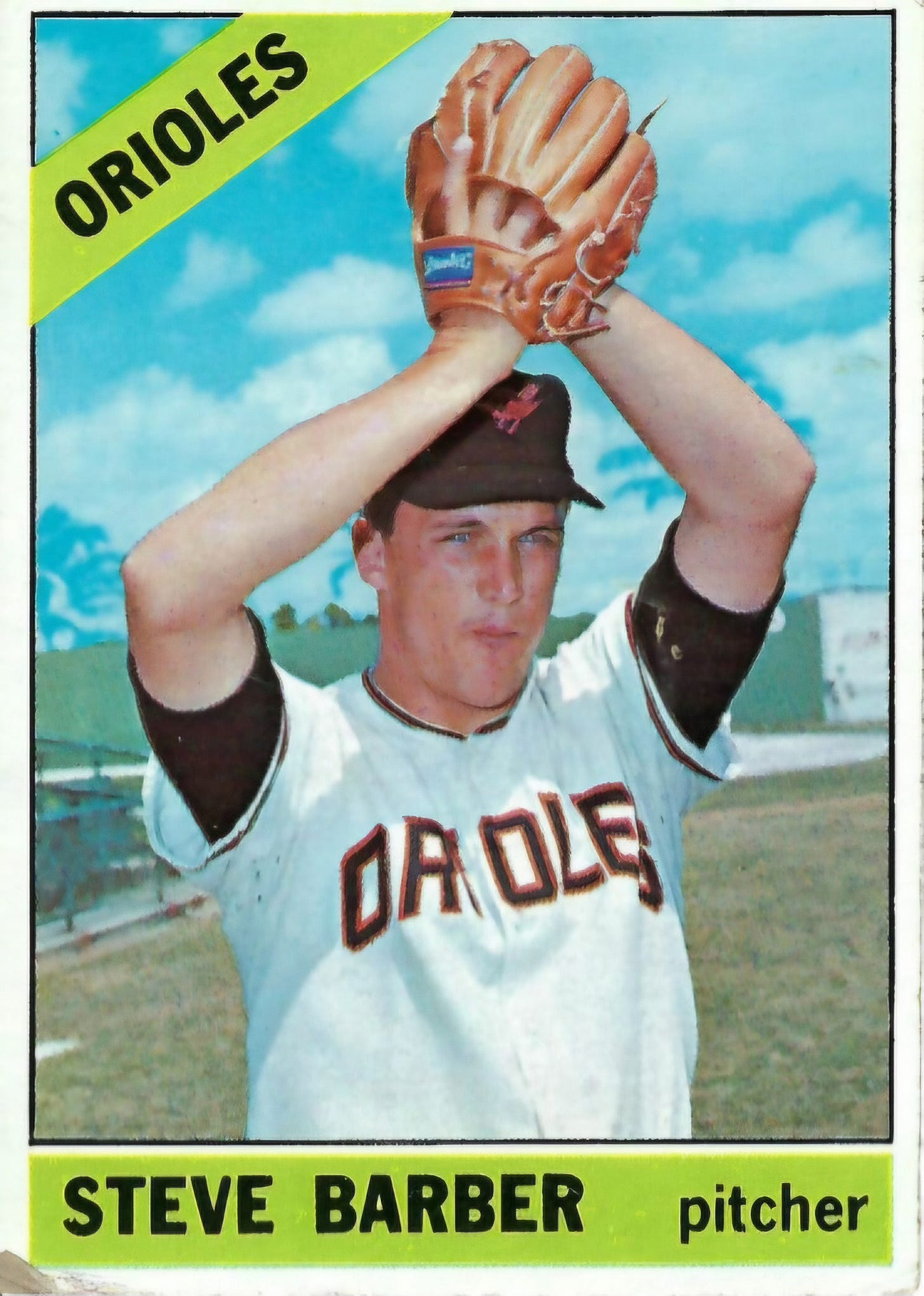The Bird Tapes Interview: Steve Barber (Part 1)
In a blunt interview salted with raw humor, the Orioles' first 20-game winner relishes recounting his outlandish journey from the Class D minors to the pinnacle of the major leagues.
To land an interview with the Orioles’ first 20-game winner a quarter-century ago, I flew almost all the way across the country, to Las Vegas. That’s where Steve Barber lived in 1999. A native Marylander, from Takoma Park, he was then a 61-year-old semi-retiree living in the shadow of the Strip and driving a school bus in the mornings because, well, that’s what he wanted to do.
More than three decades had passed since his finest season, when he went 20-13 for the Orioles as a 25-year-old left-hander in 1963. But as you’ll hear in the first part of his vintage interview, available below to paid Bird Tapes subscribers, he didn’t really want to talk about. He preferred to talk about his long, winding journey just to get to the 1963 season.
What a tale. And not a short one.
In the fall of 1956, Barber was a freshman at the University of Maryland, studying electrical engineering. The previous spring, he’d graduated from Montgomery Blair High School in Montgomery County. Baseball scouts had talked to him about turning pro, but the money they’d offered wasn't huge and Barber had told them to check back with him after college.
But that was before he experienced college engineering.
“I didn’t like it,” he said, “and it didn't like me.”
He dropped out, thinking he might join the Air Force and become a fighter pilot. But a local high school coach and Orioles scout, Walter Youse, talked him into taking a bus to a tryout at the Orioles’ minor league camp in Thomasville, Georgia.
“I figured why not, I could always jerk wire” as an electrician, Barber told me.
He was assigned uniform number 285. No one envisioned him winning 20 games someday. But after three weeks in Thomasville, the coaches saw enough potential to sign him to a Class D contract.
It wasn't a big-money negotiation. To close the deal, Orioles farm director Harry Dalton reached into the petty cash drawer and gave Barber $50 for bus fare back to Takoma Park. He needed to pick up some stuff before he began his pro career in Paris, Texas. (He hated to leave Thomasville because the girls thought he looked like Paul Newman, he said.)
In Barber’s recounting, the Orioles promptly forgot about him as he languished in obscure Class D leagues for three seasons, growing increasingly frustrated. He threw a fastball so hard and heavy that opposing batters said it was like hitting a bowling ball, but he couldn’t control it and, he said, his coaches didn't bother to work with him. Barber said he asked Dalton either to give him coaching or release him, to no avail.
His break came when one of his Class D catchers, Cal Ripken Sr., was promoted and recommended him to the higher-ups. He wound up showcasing his talents in a September 1959 workout at Memorial Stadium, where Orioles manager Paul Richards spotted him.
“Son, how come I haven’t heard of you?” Richards asked.
“Probably because I’m not one of your (bleeping) bonus babies,” Barber replied.
Barber was assigned to an instructional league, where, he said, he finally received the coaching he needed and developed a consistent release point, improving his command and effectiveness. He made the Orioles’ rotation the next spring — yes, straight from Class D — and was a mainstay through the World Series-winning season in 1966.
It’s the longest of longshot tales, a future 20-game winner signed for $50 out of the petty cash drawer. In his interview, Barber relishes every twist and turn.
A warning, his teammates kidded him about his propensity for mumbling, which is evident in our interview. Remember what Jim Gentile said in his Bird Tapes interview after I’d told him I also interviewed Barber for my book on Orioles history. “Did he mumble?” Gentile laughed. Yes, Diamond Jim, he did.
Gentile also said Barber definitely was the teammate to call if you ever needed anything fixed around your house. Barber, who died in 2007, was the workingman in the early Orioles’ cavalcade of personalities, moving through life with a down-to-earth, real-guy ethos. As you’ll hear, his dog was present for the interview … quite present.
(Note: I’m including the first half of my Barber interview in this post. I’ll post the second half next week. If you’re a free subscriber to the Bird Tapes and want to upgrade to a paid subscription, which enables you to hear this and every vintage interview in my collection, just click on the button below.)
Keep reading with a 7-day free trial
Subscribe to The Bird Tapes to keep reading this post and get 7 days of free access to the full post archives.





